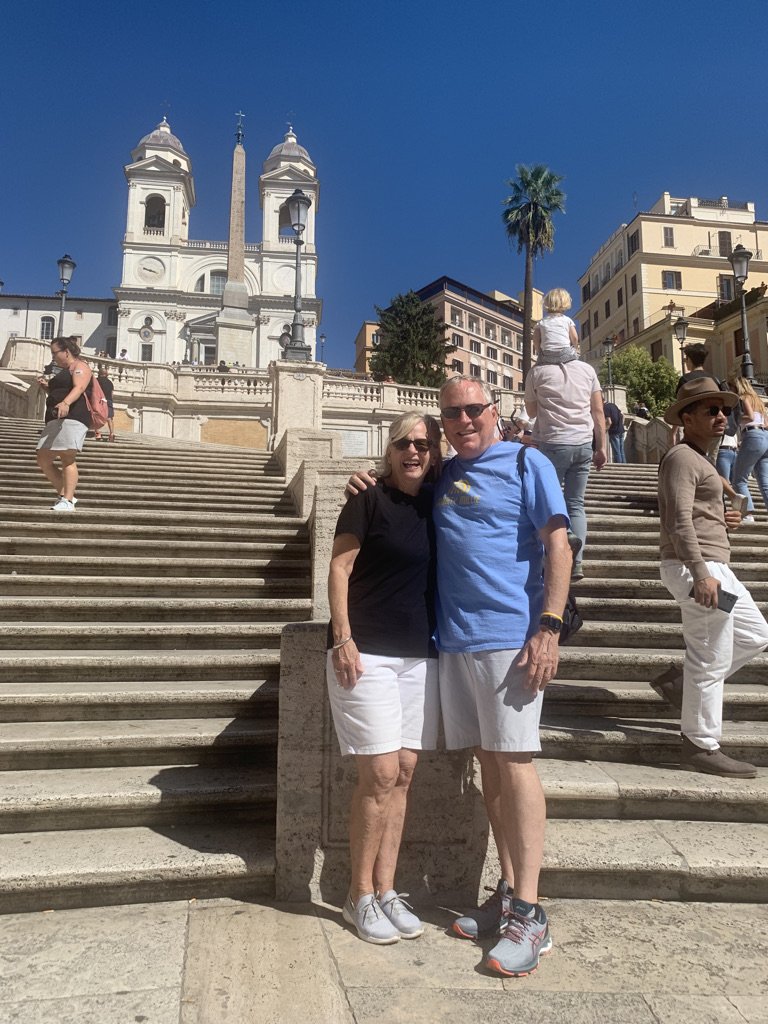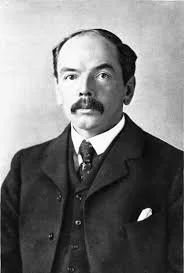11.5 - When the Path Disappears
Click here to Subscribe and receive a new copy in your inbox when available.
A Young Man’s Question: “Is Retirement All They Say It Is?”
I was standing in my soon-to-be son-in-law's father's kitchen when a young man asked me an intriguing question: "So, how is retirement? Is it all that they say it is?” I paused for a moment before answering.
“No," I responded. "It's different. Not better, not worse, just different.” His eyes widened, and his mouth dropped open.
Before he could ask, I continued, “It's like all your life, you've been swimming laps in your lane in the pool, and then, all of a sudden, you find yourself in open water with no well-defined lane. No structure.”
He seemed to understand. We then talked for a few minutes about the importance of non-financial planning for retirement. Retirement is not a goal; it's a new season that requires its own goals.
Identity Beyond Occupation: Who Are You Without the Title?
This reminded me of our last segment on the importance of identity. Jesus demonstrated that understanding one's true identity is the foundation for a meaningful life. However, many of us misconstrue our identity as our occupation and come to be defined by "what we do.” But, upon retirement, "what we do" is done, and we are left without our uniforms and business cards, wondering, “Who am I now?”
Oh, don't get me wrong. The freedom to fish, golf, and travel is fabulous, but eventually, we may find ourselves in open water, searching for a shoreline to regain our bearings. That's where non-financial retirement planning comes in. Establishing an identity that lies deeper than our occupation and a plan for exercising that identity after retirement is crucial.
To my grandchildren and their children: listen for that inner voice that confirms you are a child of the Creator, endowed with unique gifts and talents, as early as possible. Practice them. These talents may become part of your occupation; perhaps they won’t. However, you will have the solid footing of knowing who you are at every step of your life.
The Swirl of Opinions: Staying True to Purpose
Today, we find Jesus with Mary and Martha. Lazarus is four days dead and deep in a cave.
11:28 When she (Martha) had said this (“Yes, Lord, I believe that you are the Messiah, the Son of God, the one coming into the world.”) she went back and called her sister Mary and told her privately, “The Teacher is here and is calling for you.” 29 And when she heard it, she got up quickly and went to him. 30 Now Jesus had not yet come to the village but was still at the place where Martha had met him. 31 The Jews who were with her in the house consoling her (sitting shiva) saw Mary get up quickly and go out. They followed her because they thought that she was going to the tomb to weep there. 32 When Mary came where Jesus was and saw him, she knelt at his feet and said to him, “Lord, if you had been here, my brother would not have died.” 33 When Jesus saw her weeping and the Jews who came with her also weeping, he was greatly disturbed in spirit and deeply moved. 34 He said, “Where have you laid him?” They said to him, “Lord, come and see.” 35 Jesus began to weep. 36 So the Jews said, “See how he loved him!” 37 But some of them said, “Could not he who opened the eyes of the blind man have kept this man from dying?”
Why did John provide us with all these unnecessary details? Wouldn't "raising Lazarus from the dead" have sufficed to demonstrate the miraculous power of Jesus? Yes, but John wants us to see so much more. Many of Jesus’ most important lessons are found not in his words but in his actions. In this story, John highlights the compassion and composure of Jesus amidst the turbulence of human reactions. His questions were calm and direct; his tears were genuine. His unspoken lesson: wherever there are humans, there will be a swirl of conflicting opinions. Stay true to the voice within; let your actions flow from your identity.
John would have us pause to consider how challenging this is, especially when dealing with family and friends. Recall that after hearing the news of Lazarus’ illness, Jesus followed the voice by staying where he was, and two days later, he chose to go to Lazarus. Each time, his following the “voice" led those closest to him to openly doubt his decisions. His disciples asked, " Are you going there again?” Mary and then Martha confronted him, saying, “If you had been here,” and their friends remarked, “Could he not have kept this man from dying?” (Apparently, this was a topic of conversation during the “Shiva.”) Jesus, however, did what he felt was necessary based on who he knew he was.
Courage, Conviction, and Kipling’s “If”
The Jameson Raid was a botched operation against the South African Republic, led by British colonial administrator Leander Starr Jameson. It involved 500 police from the British South Africa Company and was launched from Rhodesia over the New Year weekend of 1895–96. At the time, Paul Kruger served as president of the South African Republic. The raid aimed to spark an uprising among the primarily British expatriate workers but ultimately failed.
Jameson’s tenacity and courage, even in the face of failure, inspired a young British poet to pen a classic poem some 15 years later. Rudyard Kipling’s “If” encapsulates the actions of men like Jameson in 1895 and Jesus 1900 years prior.
If you can keep your head when all about you
Are losing theirs and blaming it on you,
If you can trust yourself when all men doubt you,
But make allowance for their doubting too;
If you can wait and not be tired by waiting,
Or being lied about, don’t deal in lies,
Or being hated, don’t give way to hating,
And yet don’t look too good, nor talk too wise:
If you can dream—and not make dreams your master;
If you can think—and not make thoughts your aim;
If you can meet with Triumph and Disaster
And treat those two impostors just the same;
If you can bear to hear the truth you’ve spoken
Twisted by knaves to make a trap for fools,
Or watch the things you gave your life to, broken,
And stoop and build ’em up with worn-out tools:
If you can make one heap of all your winnings
And risk it on one turn of pitch-and-toss,
And lose, and start again at your beginnings
And never breathe a word about your loss;
If you can force your heart and nerve and sinew
To serve your turn long after they are gone,
And so hold on when there is nothing in you
Except the Will which says to them: ‘Hold on!’
If you can talk with crowds and keep your virtue,
Or walk with Kings—nor lose the common touch,
If neither foes nor loving friends can hurt you,
If all men count with you, but none too much;
If you can fill the unforgiving minute
With sixty seconds’ worth of distance run,
Yours is the Earth and everything that’s in it,
And—which is more—you’ll be a Man, my son!
Feeling Deeply, Following Faithfully
I have often thought of Jesus as task-oriented and aloof. However, John paints a picture of Jesus as “greatly disturbed in spirit and deeply moved.” He mourned at the sight of mourning and cried with those crying. However, while doing so, he listens intently for the voice within and follows it toward the tomb. His deeply felt emotions were subject to his will, which was subject to "thy will." Again, his unspoken lesson is to walk through life, deeply feel our feelings, yet always follow the voice within.
It's not either/or, “feeling or following,” but both/and, “feeling and following.”
38 Then Jesus, again greatly disturbed, came to the tomb. It was a cave, and a stone was lying against it. 39 Jesus said, “Take away the stone.” Martha, the sister of the dead man, said to him, “Lord, already there is a stench because he has been dead four days.” 40 Jesus said to her, “Did I not tell you that if you believed you would see the glory of God?” 41 So they took away the stone. And Jesus looked upward and said, “Father, I thank you for having heard me. 42 I knew that you always hear me, but I have said this for the sake of the crowd standing here, so that they may believe that you sent me.” 43 When he had said this, he cried with a loud voice, “Lazarus, come out!” 44 The dead man came out, his hands and feet bound with strips of cloth and his face wrapped in a cloth. Jesus said to them, “Unbind him, and let him go.”
Removing the Stone: Confronting Life’s Obstacles
My either/or sorting system seeks to categorize these verses into one of two groups: Either “Jesus was a miracle worker with power ‘unavailable to the mortal man,’” or “This couldn't have happened, so I'm not buying any of this stuff.” But let's not. Let's dwell in the “tension between the two” and explore a more profound lesson. Jesus silently prayed about this on the way to Lazarus’ house and the tomb. He even prayed aloud, not for God to hear, but for others, demonstrating the constant, two-way communication within one's spiritual consciousness.
He rounded the corner after two days of praying to find – a stone!
To my grandchildren and their children: Has this ever happened to you? If it hasn't, it will. You pray or wish for something, and things get worse instead of better?
I have! You turn a corner with great expectation only to find a stone - an additional obstacle between you and your desire. What should you do? Observe Jesus' reaction, who is already "greatly disturbed.” He quickly and calmly says, “Take away the stone.” He didn't stop. He didn't complain. He didn't call all his friends to talk about it or post a picture. He acknowledged the obstacle and set about removing it.
The Sacred Space: Discovering True Fulfillment
Casting Jesus as a distant, enigmatic superhero will obstruct our connection with Him and limit the depth of our spiritual lives. We will overlook that one thing we all yearn for at the center of our being: “oneness,” that indwelling, that transcendent relationship with our inner voice. This is the sacred space where we discover meaning and purpose. This is the concealed place that provides us peace, joy, and the energy to love our neighbors and ourselves. This is the unseen place where our lives become abundant and eternal.
Key Takeaways
Retirement is not an endpoint but a new beginning that requires personal and spiritual preparation. While financial planning is essential, having a sense of identity beyond one’s career is crucial for a fulfilling life.
True strength lies in maintaining conviction and composure amid adversity. Real leadership and faith require perseverance, trusting oneself, and the ability to navigate challenges with grace.
Jesus exemplifies the balance between deep emotion and unwavering purpose. His response to Lazarus’ death teaches us to embrace our feelings while remaining guided by faith and inner conviction.
Life’s obstacles are not signs to stop but challenges to overcome. Just as Jesus instructed the removal of the stone before Lazarus was raised, we must confront and move past barriers that stand between us and our purpose.








